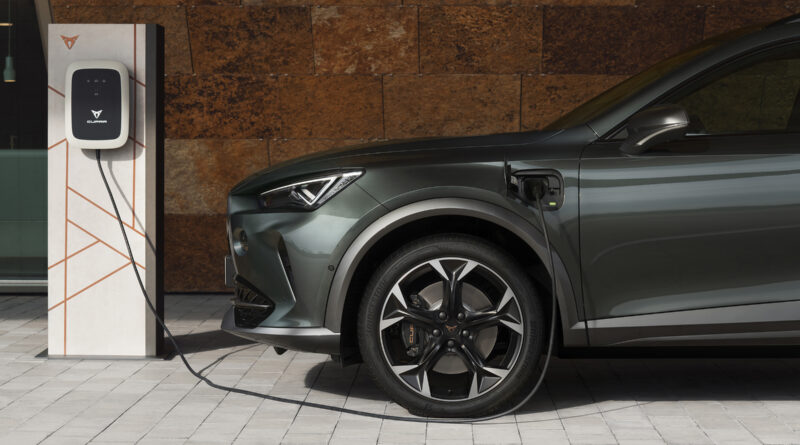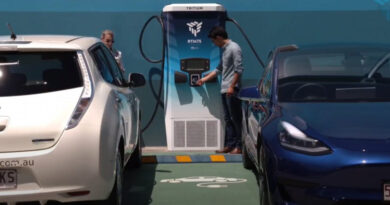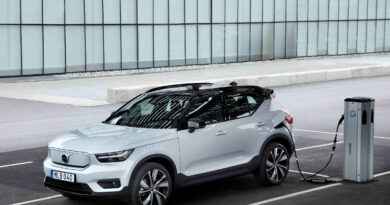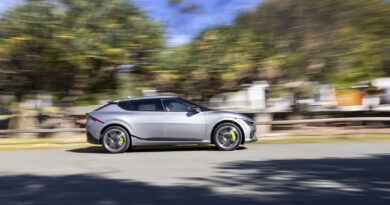EV rollout a slow road with Barnaby bumps along the way
We seem to be living in a two-speed e-carnomy, at least here in Australia.
How many times have you heard that “the EVs are coming”? How many headlines have you read about car companies doing away with their internal-combustion engines to focus entirely on electric vehicles?
Audi will be fully electric by 2026, Polestar already is, even Mazda – one of the last holdouts for electric technology – is getting on board in a big way, pledging to electrify everything, even the MX-5. There are many more: Cadillac, General Motors, Jaguar, Volvo included.
And yet… look around you. How many EVs do you see on our roads? Are there more than there were last week, or last year?
If you can answer yes, you must have a keener eye than I.
Slow going, but politicians are waking to EVs
So is this future really coming, and when will it get here?
Certainly there are moves afoot in this country – albeit none of them at a Federal level – to change things. The NSW State Government made a genuine commitment to encouraging EV buyers recently with its announcement of charging-station rollouts and a zeroing out of stamp duty on electric vehicles, plus other cash incentives.
That’s a genuine indication that, in at least some states, politicians are starting to take the EV revolution seriously.
And yet at the Federal level, Barnaby Joyce is back, and he’s about as likely to drive an EV, or drive the idea of EV take-up, as he is to wear a tight-fitting t-shirt with a picture of Greta Thunberg on the front and “There is No Planet B” across the back.
A colleague also pointed out recently that, while car companies are constantly promising a massive shift to EVs in five, or more usually 10 years from now, many of the executives making those promises probably won’t be in those roles by then – meaning they can promise whatever they like, because it won’t effect them.
It’s a similar story with politicians, or at least it is if you want to be pessimistic.
The thing about the UK’s promise to ban the sale of petrol and diesel cars by 2030, and then all hybrids by 2035, is that it’s just that, a promise. And a promise by a political party no less.
The leader of that party, Boris Johnson, does sound and seem green, but he also said Covid was nothing to worry about and bragged about shaking hands with people who had it. And then caught it.
He’s also been quite a profligate liar (the guy used to be a journalist, for God’s sake) in his time in power, not that that makes him hugely different from any other politician.
The unachievable goal?
And yet the world seems to be taking that 2030 pledge as absolute gospel. I’ll let you in on a little personal theory – I don’t think they’re going to make it.
I’m not saying it’s not a good idea, nor a worthy goal, but it’s about as likely as Australia reaching net zero by 2050 by not making any energy policy shifts whatsoever.
But here’s the thing – you’re hearing a lot about it, I’m reading a lot about it, other countries – not ours, but big, serious countries – are feeling like they should follow suit. And it all starts to create a sense, particularly within car companies where model cycles take seven years, that the days of combustion engines are gone.
Even Ferrari is going electric hybrid, for goodness sake, its latest 296 GTB an indication it will hit the entire lineup. And with enough of this kind of soft pressure, a kind of widely held belief and hope that change is coming, the auto manufacturers will react. And are reacting.
And while it might not feel like it down here, where EV sales still make up less than 1 percent of all new vehicles bought, it really is starting to make a difference.
Fortunately, we don’t make cars any more, which means we’re going to have to buy what the rest of the world is making. And if you read the tea leaves (I think the modern form is called “the internet”) it does look like the case that by 2030, at the latest, that’s largely going to be EVs.
Well, that and big American SUVs. I guess we might just keep buying those. Barnaby would.





I’m optimistic. Climate change deniers and bogans can sneer at Tesla and get away with it, but the Volkswagen group? GM? Volvo? Hyundai?
I’m so very happy to have bought an EV. We’re still transitioning from ICE in my household (there’s not a huge range of affordable electric motorcycles or trade vans yet), but the writing’s on the wall.
Barnaby Joyce is an irrelevance, on the world stage. So is Morrison, Taylor, Pitt and the rest of that miserable bunch. The decisions our government makes just don’t count when it comes to long term world planning for a zero emissions future, except as a punchline. They just make it harder for Aussies to choose to buy EVs, which I’m sure is their intention.
Cheers